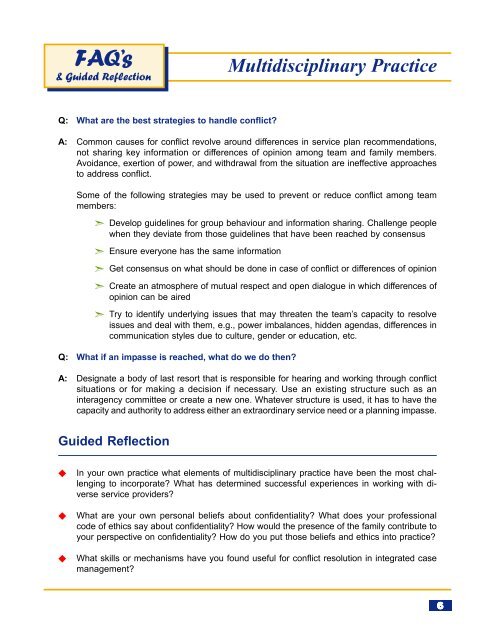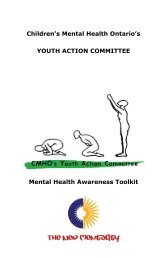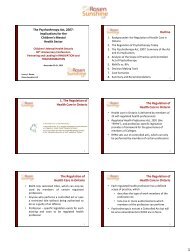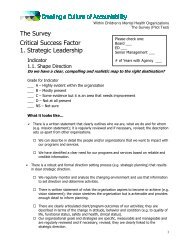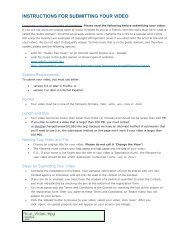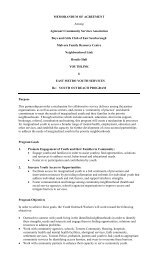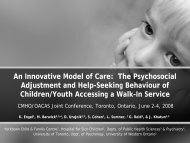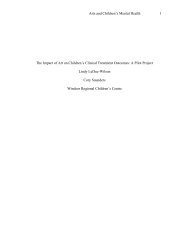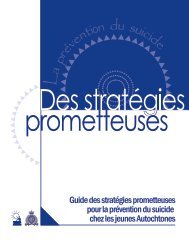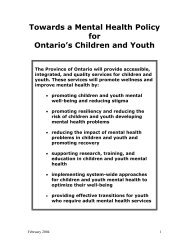Early Childhood Mental Health Treatment: Training Reference Guide
Early Childhood Mental Health Treatment: Training Reference Guide
Early Childhood Mental Health Treatment: Training Reference Guide
Create successful ePaper yourself
Turn your PDF publications into a flip-book with our unique Google optimized e-Paper software.
FAQ’s<br />
& <strong>Guide</strong>d Reflection<br />
Multidisciplinary Practice<br />
Q: What are the best strategies to handle conflict<br />
A: Common causes for conflict revolve around differences in service plan recommendations,<br />
not sharing key information or differences of opinion among team and family members.<br />
Avoidance, exertion of power, and withdrawal from the situation are ineffective approaches<br />
to address conflict.<br />
Some of the following strategies may be used to prevent or reduce conflict among team<br />
members:<br />
Develop guidelines for group behaviour and information sharing. Challenge people<br />
when they deviate from those guidelines that have been reached by consensus<br />
Ensure everyone has the same information<br />
Get consensus on what should be done in case of conflict or differences of opinion<br />
Create an atmosphere of mutual respect and open dialogue in which differences of<br />
opinion can be aired<br />
Try to identify underlying issues that may threaten the team’s capacity to resolve<br />
issues and deal with them, e.g., power imbalances, hidden agendas, differences in<br />
communication styles due to culture, gender or education, etc.<br />
Q: What if an impasse is reached, what do we do then<br />
A: Designate a body of last resort that is responsible for hearing and working through conflict<br />
situations or for making a decision if necessary. Use an existing structure such as an<br />
interagency committee or create a new one. Whatever structure is used, it has to have the<br />
capacity and authority to address either an extraordinary service need or a planning impasse.<br />
<strong>Guide</strong>d Reflection<br />
<br />
<br />
<br />
In your own practice what elements of multidisciplinary practice have been the most challenging<br />
to incorporate What has determined successful experiences in working with diverse<br />
service providers<br />
What are your own personal beliefs about confidentiality What does your professional<br />
code of ethics say about confidentiality How would the presence of the family contribute to<br />
your perspective on confidentiality How do you put those beliefs and ethics into practice<br />
What skills or mechanisms have you found useful for conflict resolution in integrated case<br />
management<br />
6


